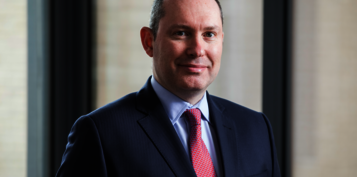The Brazilian general election
Investment companies comment on prospects.

 On Sunday 7th October Brazil goes to the polls for a general election. It’s been a difficult period for the emerging market country as Brazil has had to cope with a severe recession and several political crises. But with news that its recession has ended and the prospect of political change on the horizon, how are investment companies viewing the prospects for Brazil?
On Sunday 7th October Brazil goes to the polls for a general election. It’s been a difficult period for the emerging market country as Brazil has had to cope with a severe recession and several political crises. But with news that its recession has ended and the prospect of political change on the horizon, how are investment companies viewing the prospects for Brazil?
The Association of Investment Companies (AIC) has gathered comments from the managers of BlackRock Latin American and Aberdeen Latin American Income.
William Landers, portfolio manager of BlackRock Latin American, said: “To invest in Brazil today, one needs to take a view on the country’s direction post the October presidential election. Our base case has always been that the electorate would eventually side with a president who would continue with the reform agenda of the past two years, therefore maintaining the country on the path of economic recovery of the past two years.
“This continues to be our base case, despite the fact that second round polls (there are currently 13 candidates for president, and in the likely case that no one receives 50% of the votes in the first round on October 7th, a second round with the two top vote getters will take place on October 28th) are showing that most potential pairings in this second round are ‘too close to call’.
If we are correct, we would expect some currency appreciation and equity market re-rating, leading to positive returns for the Brazilian equity market. A return to the same populist policies that led Brazil into its worst recession in recent history during 2014-16 would have the opposite effect.”
Edwin Gutierrez, head of emerging market sovereign debt at Aberdeen Standard Investments, which manages Aberdeen Latin American Income, said: “The backdrop of Brazil’s election on 7th October is defined by the corruption of the entire political establishment and a period of swingeing economic decline. Both have led Brazil’s electorate to be amongst the most divided and dissatisfied in the country’s history. It is no surprise therefore that populism is thriving in Latin America’s largest democracy. The first round of the presidential election will probably see the far-right populist Jair Bolsanaro and Fernando Haddad, the candidate from the disgraced, left-wing Workers’ party taken through.
“The second round will be close. Bolsanaro has the highest rejection rate of any of the candidates and is deeply unpopular amongst the many minority groups. Meanwhile, Haddad represents the Workers’ party which has dominated Brazilian politics for so long and whose credibility has been destroyed by wide-ranging corruption investigations in recent years. But the second round of Brazilian presidential elections are largely defined by a decision about who voters don’t want to be president, more than who they do want. On this calculus, voters are likely to reject Haddad as the face of the status quo and opt for the promise of radical change under Bolsanaro.
“Bolsanaro is certainly the more market friendly of the two candidates. But he has credible plans for tackling the country’s two most urgent economic issues: pension reform and privatisation. If Bolsanaro wins then we should see a relief rally in Brazilian assets.”
William Landers, portfolio manager of BlackRock Latin American, said: “Brazil is still seen as a high beta market within the emerging market universe. It does not offer the opportunity to invest in technology stocks like many Asian markets, and it does not have the reliance on international funding that has caused issues in Argentina and Turkey during recent periods of US dollar strength versus emerging currencies. But Brazil’s unfinished reform agenda and growing domestic debt, along with relative low domestic equities ownership, leave it vulnerable to drawdowns in periods when global investors are uninterested in emerging markets equities.
“Under a scenario of successful completion of the reform agenda (focus on pension reform and fiscal simplification), the outlook for Brazilian equities is positive. The economy is still in the early stages of recovery following the almost 8% reduction in the local base rate, Selic, to 6.50%. Low interest rates (at least from a Brazilian standpoint) have begun to cause an increase in domestic equity ownership, which over time should reduce the market’s volatility caused by external factors and global flows. This virtuous circle of improving economic growth, low interest rates and higher domestic interest in equities should be positive for local equities’ performance and valuation, potentially leading to a prolonged period of equity market rerating.”
Investment companies with highest exposure to Brazil
|
Company name |
AIC sector |
% of holdings in Brazil |
Data as at |
|---|---|---|---|
|
JPMorgan Brazil |
Country Specialists: Latin America |
98.20 |
31/08/2018 |
|
BlackRock Latin American |
Latin America |
62.19 |
31/08/2018 |
|
Aberdeen Latin American Income |
Latin America |
29.10 |
31/08/2018 |
|
Hansa Trust |
Flexible Investment |
17.70 |
31/08/2018 |
|
Utilico Emerging Markets |
Global Emerging Markets |
15.38 |
31/08/2018 |
|
NB Distressed Debt |
Sector Specialist: Debt |
11.90 |
30/06/2018 |
|
Premier Global Infrastructure |
Sector Specialist: Utilities |
10.54 |
31/08/2018 |
|
JPMorgan Global Emerging Markets Income |
Global Emerging Markets |
9.90 |
31/08/2018 |
|
JPMorgan Emerging Markets |
Global Emerging Markets |
8.50 |
31/08/2018 |
|
Templeton Emerging Markets |
Global Emerging Markets |
6.70 |
31/08/2018 |
|
Genesis Emerging Markets |
Global Emerging Markets |
5.90 |
30/06/2018 |
|
Aberdeen Emerging Markets |
Global Emerging Markets |
5.00 |
31/08/2018 |
-Ends-
Follow us on Twitter @AICPRESS
Notes
- The Association of Investment Companies (AIC) was founded in 1932 to represent the interests of the investment trust industry – the oldest form of collective investment. Today, the AIC represents a broad range of closed-ended investment companies, incorporating investment trusts and other closed-ended investment companies and VCTs. The AIC’s members believe that the industry is best served if it is united and speaks with one voice. The AIC’s mission statement is to help members add value for shareholders over the longer term. The AIC has 354 members and the industry has total assets of approximately £188 billion.
- Disclaimer: The information contained in this press release does not constitute investment advice or personal recommendation and it is not an invitation or inducement to engage in investment activity. You should seek independent financial and, if appropriate, legal advice as to the suitability of any investment decision. Past performance is not a guide to future performance. The value of investment company shares, and the income from them, can fall as well as rise. You may not get back the full amount invested and, in some cases, nothing at all.







